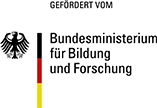As a professional, I can tell you that the term „taciturn agreement“ may not be one that many people are familiar with. However, it is a concept that can be important both in business and in personal relationships.
A taciturn agreement is an agreement or understanding that is reached without any explicit discussion or negotiation. It is an unspoken agreement that is based on implicit understanding and shared expectations. While the word „taciturn“ is often associated with being quiet or reserved, in the case of a taciturn agreement, it refers more to the fact that the agreement is not expressed in words.
One example of a taciturn agreement might be the understanding between a boss and an employee about what is expected in terms of work hours. Without explicitly stating it, the employer may expect the employee to be available to work beyond normal business hours when necessary. The employee may understand this expectation and feel obligated to comply, even though it was never discussed.
Another example might be the unspoken agreement between two friends about how much time they should spend together. One friend may feel that they should see each other every week, while the other may believe that once a month is sufficient. Without ever discussing it, they may both feel that they are meeting the expectations of the other.
While taciturn agreements can be useful in some circumstances, they can also lead to misunderstandings and conflict. When there is no explicit agreement, there is often room for interpretation and assumptions. One party may believe that the other is not meeting expectations, when in fact they were not aware of what was expected.
To avoid this kind of miscommunication, it is often better to have explicit discussions and negotiations about expectations and agreements. This can ensure that everyone is on the same page and understands what is required of them.
In conclusion, while a taciturn agreement may seem like a convenient way to avoid difficult conversations, it can also be a source of misunderstanding and conflict. By being open and explicit about expectations and agreements, we can avoid these pitfalls and build stronger relationships based on clear communication.
